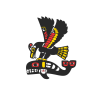Sarah Simpson, Cowichan Valley Citizen, 05 Sep 2017
The Koksilah River is in trouble, with low flows threatening fish populations.
The provincial government has announced a level 3 drought rating and is calling for voluntary 30 per cent water-use reductions for residents of Vancouver Island and the Gulf Islands as temperatures continue to soar.
Of particular concern is the hot weather negatively affecting stream and river flows and water supplies.
Cowichan Watershed Board executive director Tom Rutherford, a fisheries biologist, said the province’s decision to move to level 3 drought status “makes good sense.”
With significant runs of coho and chum salmon and smaller populations of chinook and steelhead, as well as being of great cultural value to the Cowichan Tribes people, and an irrigation source for farms in lower watersheds, the Koksilah is important to the region’s water system.
But, with no rain since mid-June and no storage in the Koksilah watershed, the flows are very low, he explained. Low flows can mean difficulty swimming, low oxygen levels, and even death for fish.
Rutherford, CWB technical advisory committee co-chair Cheri Ayers, and Cowichan Tribes biologist Tim Kulchyski are meeting with provincial senior aquatic ecologist Jaro Szczot on Sept. 13 to plan next steps for establishing critical flow thresholds for the Koksilah for the long term.
Szczot has been working to set up gauging stations to follow Koksilah flow patterns.
“The CWB looks forward to working with [the province] to establish formal critical flow thresholds for the Koksilah,” Rutherford said. “In the face of climate change, increased population in the watershed and continued land use practices that affect hydrology, establishing critical flow thresholds as defined under the act is necessary in order to minimize negative impacts on the ecological and cultural values in the Koksilah watershed as much as possible.”
A  issued by the Ministry of Forests, Lands, Natural Resource Operations and Rural Development said if a voluntary 30 per cent water-use reduction isn’t sufficient to maintain flows above critical levels, stronger action will be taken.
issued by the Ministry of Forests, Lands, Natural Resource Operations and Rural Development said if a voluntary 30 per cent water-use reduction isn’t sufficient to maintain flows above critical levels, stronger action will be taken.
“Specific actions could include the temporary suspension of water licences or short-term water approvals to restore flows to minimum critical levels in the affected streams. Ministry staff are in the process of directly contacting water users to encourage water conservation and to advise about potential water regulation,” said the release.
At home folks are encouraged to limit outdoor watering, especially to avoid watering in the heat of the day or when it’s particularly windy. Taking shorter showers and turning off the tap also help, as does installing water-efficient showerheads, toilets and taps.
“Water conservation is everyone’s responsibility,” said the release.
To learn more visit the 2017 B.C. Drought Information Portal: https://arcg.is/1W9SMZv
 Email
Email



